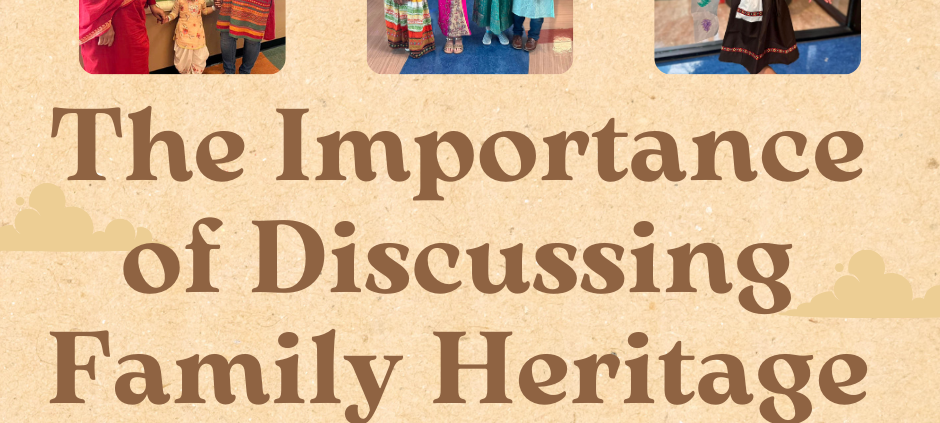The Importance of Discussing Family Heritage
At Imagine, we believe that each child’s unique background is a vital part of their development and identity. Understanding where they come from gives children a sense of belonging and helps them build self-confidence. One of the best ways to foster this understanding is through conversations about family heritage.
In today’s world, children are surrounded by diverse cultures, languages, and traditions. By learning about their own heritage and the heritage of their peers, children can appreciate both their uniqueness and the rich tapestry of the world around them. Here, we explore why it’s important to discuss family heritage with your child and how we embrace this value at Imagine.
Why Discussing Family Heritage is Essential
- A Sense of Identity
Knowing about their family’s history, customs, and traditions provides children with a strong foundation for their identity. It helps them understand their place in the world and fosters a sense of pride in their background. For young children, hearing family stories or learning about cultural traditions can ignite curiosity about their roots and shape how they see themselves.
At Imagine Early Education and Childcare, we encourage children to share stories about their families and cultural backgrounds. These discussions help each child feel valued and connected, reinforcing the idea that our differences make us special.
- Promoting Diversity and Inclusion
Discussing family heritage is also a powerful way to promote diversity and inclusion. By learning about different cultures, languages, and traditions, children gain a broader perspective and develop empathy for others. Understanding that everyone comes from a unique background teaches respect for differences and helps children build friendships with peers from all walks of life.
Our centers celebrate cultural diversity through special events, such as international days where children and families can share aspects of their heritage. Whether it’s trying new foods, listening to music, or engaging in traditional dances, these experiences help children appreciate the beauty of diversity.
- Strengthening Family Bonds
Talking about family heritage is a wonderful way to strengthen the bond between generations. Grandparents, parents, and other relatives often hold valuable stories and knowledge about family history, traditions, and values. Sharing these stories helps children connect with their past while creating lasting memories with loved ones.
We encourage families at Imagine to take part in these discussions at home, using resources like family photo albums, recipes, or cultural artifacts to spark conversations about their heritage. These meaningful exchanges can help children build a deeper connection to their family and its history.
- Building Self-Esteem
When children know and understand their family’s heritage, they feel a greater sense of self-worth. They take pride in the uniqueness of their family’s traditions and contributions, which can boost their self-esteem. Children who have a strong sense of identity and heritage are often more confident in social settings and more likely to share their experiences with others.
At Imagine Early Education and Childcare, we create an environment where each child’s heritage is celebrated. Whether through classroom discussions or activities that explore cultural traditions, we ensure that every child feels a sense of pride in their identity.
At Imagine Early Education and Childcare, we are committed to nurturing not just academic growth but also a strong sense of cultural identity. By encouraging conversations about family heritage, we help children understand who they are, appreciate the diversity of their peers, and build a foundation for success in an inclusive world.
We invite you to join us in celebrating the importance of family heritage and fostering a strong sense of identity in your child. Let’s work together to create a brighter future, one that honors the past while embracing the possibilities of tomorrow.



